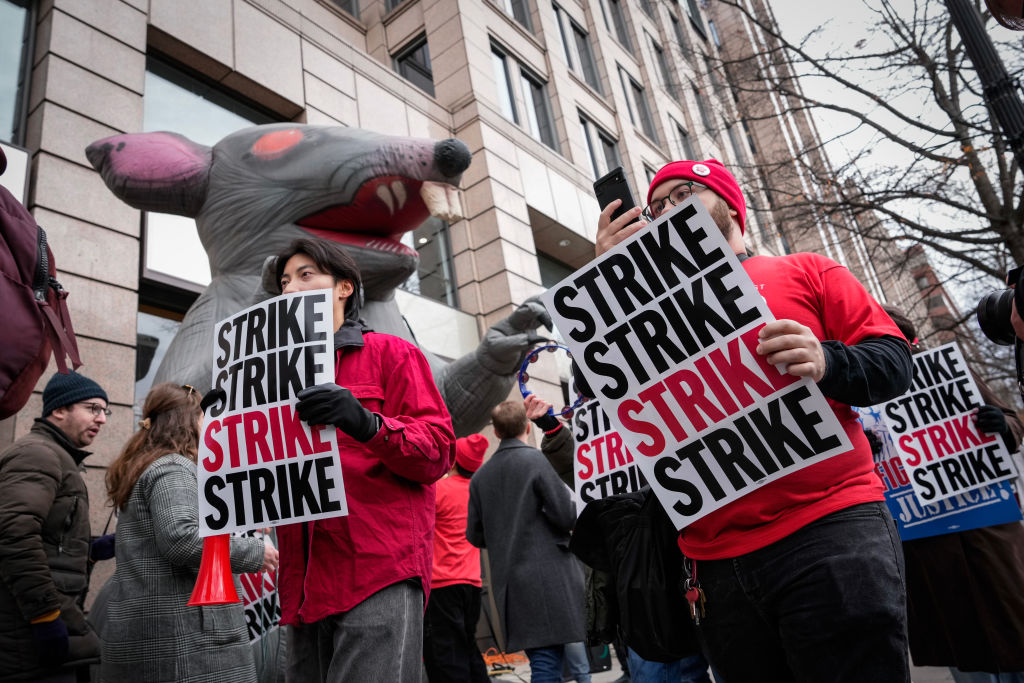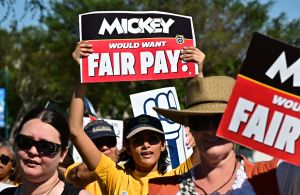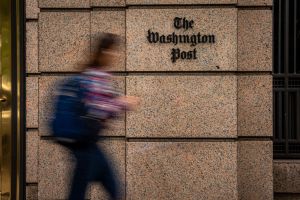Around 750 employees for the Washington Post walked out on their jobs Thursday in the first labor strike against the newspaper in fifty years. A couple hundred of the actively striking employees gathered outside of the paper’s headquarters in Washington, DC, where they marched in tandem and noshed on coffee, pastries and pizza provided by local businesses.
Coincidentally, that is about even with the number of jobs — 240 — the Post says it needs to cut amid negative profits and struggles to grow its subscriber base. So far 120 employees have accepted voluntary buyouts to leave their roles, meaning just as many will likely be laid off in the coming months. Nonetheless, the employees mostly seemed happy and excited to be on strike.
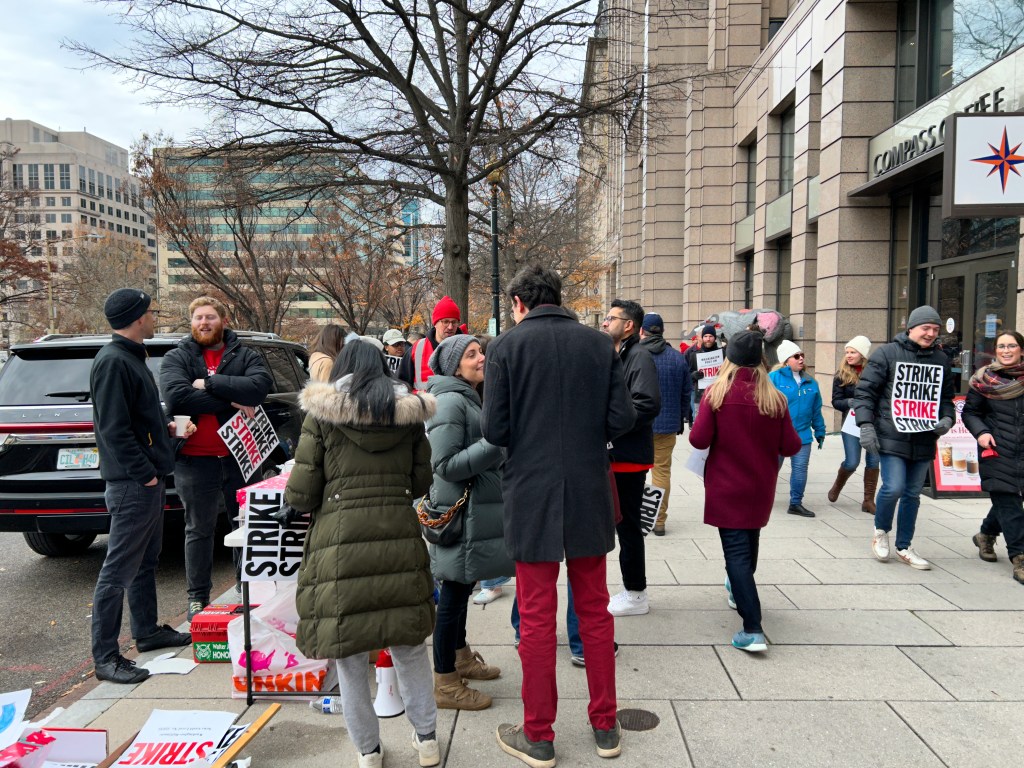
Amid these challenges, Washington Post Guild members told me that they believe Washington Post leadership has not been negotiating with the union in good faith, citing the fact that a deal has not been reached with workers in eighteen months. Hannah Good, a comics designer for the Post, and Marissa Lang, a social issues reporter, both cited “pay equity”and mental healthcare coverage as top concerns for union members. The union says it previously secured Juneteenth as a company holiday, “gender affirmation care and support,” safety guarantees for journalists, better bereavement, sick and family leave, and more robust discrimination protections.
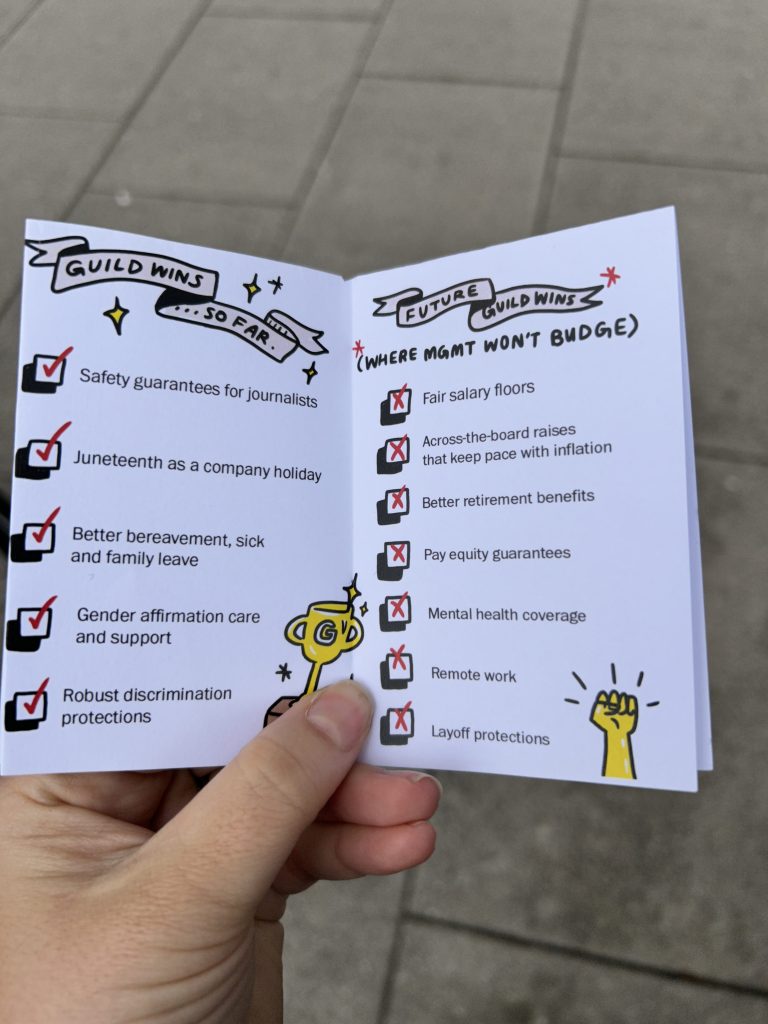
Also in play is the company’s remote work policy. Washington Post employees currently only have to be in the office three days a week, but Guild leaders expressed that they wanted the policy written into their contracts and wanted more flexibility to decide when they work in person. Lang said the union was seeking to secure employees an entire month where they could do their jobs remotely, such as over the winter holiday season.
Good told me that the Post had offered a $50,000 salary floor during an earlier round of negotiations but the union rejected the offer. She also noted that inflation has eaten into the salaries and recent modest raises of Post staff.
The Post employees striking Thursday were joined by leadership of the NewsGuild-CWA, a national labor union for communications specialists, and the Association of Flight Attendants-CWA. Sara Nelson, the international president of the AFA-CWA and a member of the Biden-Sanders Unity Task Force during the 2020 election, said that reporters on the Post transportation desk “saved lives” with their journalism and blamed the current negotiating impasse on Post owner Jeff Bezos being too focused on his “dick rocket”.
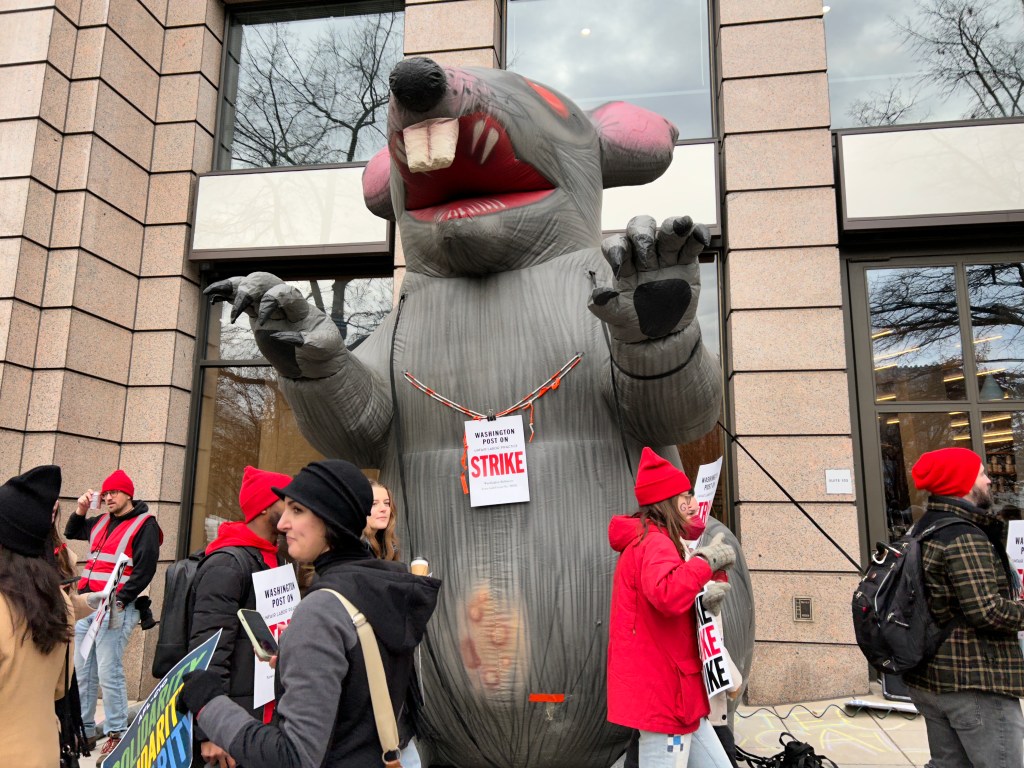
The DC Labor Chorus also made an appearance to sing traditional pro-union songs. Several Post employees shared the alleged unfair treatment they received at the hands of management, such as salaried employees not receiving overtime after working twelve to fifteen-hour days, entry level editorial aides making minimum wage and raises not being commensurate with those of their colleagues. There were also heavy suggestions of racial discrimination throughout the testimonies.
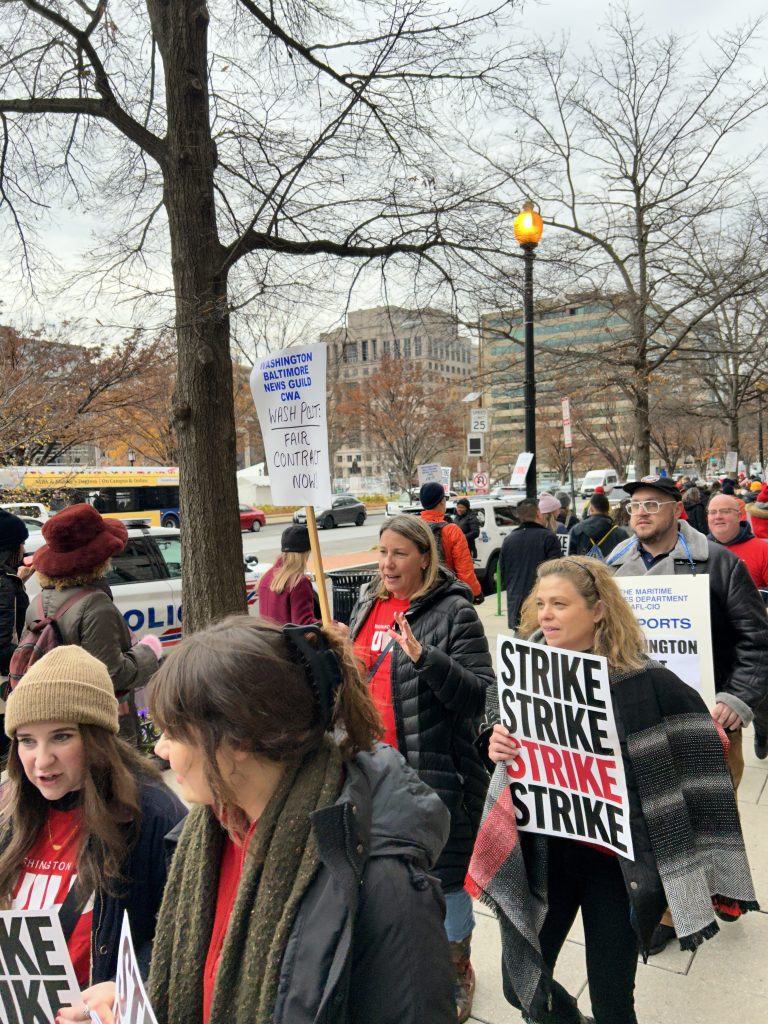
Throughout the day, Post employees braved the low temperatures to beat bucket drums, blow vuvuzelas and dance to mid-2000s pop hits as they called for better pay. However, they also acknowledged that they had no plans for further action following the twenty-four-hour walkout. Good said she hoped the collective strike was enough to force Post leadership back to the bargaining table and to take their demands seriously. When asked who would write the “fake news” with so many employees on strike, Lang replied that “no one writes fake news” at the Post.



